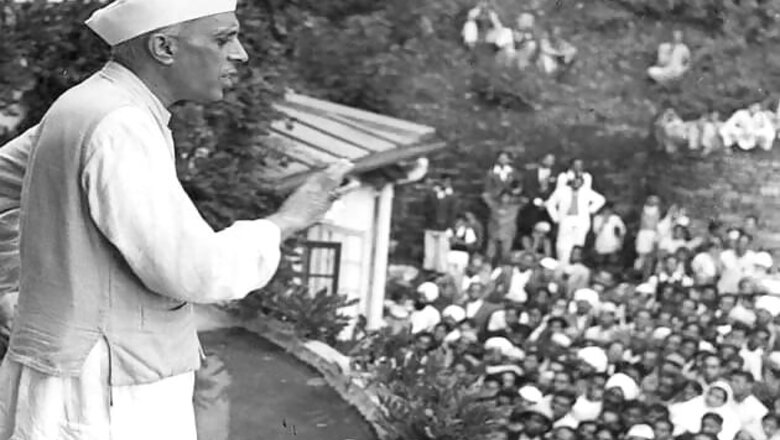
views
New Delhi: The nation observes the birth anniversaries of two of the tallest leaders of post-Independence India - Jawaharlal Nehru and Vallabhbhai Patel - two weeks apart. This year, these celebrations have generated a controversy in view of the efforts being made by different political parties to 'appropriate' the legacy of the two leaders. In this backdrop it would be useful to recall the 'play of politics' when both Nehru and Patel led the country during the years following Independence.
It is important to record that even though Nehru and Patel differed very strongly on a range of issues, they maintained a 'dignified civility' when it came to their public conduct. The nature of Indian politics in the 1940s bears ample testimony to this fact. With the dawn of Independence, Nehru and Patel, played a pioneering role in directing the affairs of the Government. In the Congress party, it was a shared responsibility. Patel, more often than not, controlled and monitored organizational matters in the Congress party. This was by virtue of his critical position in the government as Home Minister and as a result of the wide ranging contacts he had and influence he exercised, both at the national and at the state level. In spite of their (Nehru and Patel) differences, which cropped up on a number of occasions and were rooted in a wide range of causes, the bridge of cooperation between them never totally collapsed though painstaking and major repairs had to be resorted to frequently. The well known historian S Gopal opines that the difference between Nehru and Patel were derived from "an impersonal conflict between two different systems of thinking and feeling and what enabled an avoidance of open rupture was mutual regard and Patel's stoic decency".
Mahatma Gandhi was invariably required to play the role of a mediator between the two if their differences strayed beyond the critical range of manageability. A few weeks before Gandhi's assassination, Patel had requested Gandhi to relieve him from the burden of office, as it would help smoothen relations both in the government and in the party. With Gandhi's assassination, the political scenario changed. Both Nehru and Patel realized the imperative need to sink their differences in the larger interests of the country. However, differences between Nehru and Patel continued to surface from time to time. These differences reached a flashpoint on the sensitive issue of the election to the Congress President in 1950. While Nehru initially favoured Shankarrao Deo for the position, he later expressed his support for Archarya Kripalani. Patel on the other hand, backed the candidature of Purushottam Das Tandon.
The Nehru and Patel versions of this crisis differed substantially. According to Patel, the issue of the Congress presidency was to be amicably resolved jointly by Nehru and himself. Patel believed that Kriplani's ascendancy to the presidency, at that juncture, would be injurious to the interests of the Congress Party. Further, when Nehru decided to unilaterally back Kriplani, Patel was left with no option. Given Nehru's move, Patel decided to sponsor Tandon's candidature. Patel was further convinced that the threat held out by Nehru, that he would resign as Prime Minister in the event of Tandon's election, would never materialize. In fact, soon after Tandon's election, Patel is reported to, in a lighted vein, have asked Rajagopalachari (who was playing the role of a mediator between Nehru and Patel) as to whether he had brought Nehru's resignation.
On the other hand, Nehru opposed Tandon, not on personal considerations but, with a view to stem the rot in the Congress. Nehru believed that Tandon's approach symbolized a 'revivalist outlook' and was responsible for 'encouraging the very forces' that were harmful to the interests of the Congress Party and the nation. Nehru even held out the threat that if Tandon were to be elected, he 'would be completely helpless', and it would be difficult to continue.
When Tandon finally emerged victorious in the Congress Presidential elections, Nehru did not resign from Prime Ministership. However, he made known his dissatisfaction and discontent with the development public. In a letter addressed to the Chief Ministers (September 1, 1950), he stated that, "the Congress is busy with its own internal troubles and elections and so the initiative passes to others." Later in the press statement issued on September 13, 1950, Nehru gave event to this anguish in the following words, "The election to the Congress Presidentship has aroused much interest and even excitement.... All kinds of forces, inside and outside the Congress, made this election have a greater significance.... Communal and reactionary forces have openly expressed their joy at the result."(emphasis added)
Once the objective of securing Tandon's election was achieved, Patel counseled patience and broad-mindedness. He advised Tandon to enlist the support and cooperation of Nehru and persuade him to join the Congress Working Committee. Nehru's strategy has most succinctly been summarized by Gopal, "When he (Nehru) became aware that he was being pushed....(he) accepted battle and conducted the fight with political skill.... he secured acceptance by the Congress bodies of resolutions which ill-expressed his own view point.... He (finally) agreed to serve on the Working Committee but made known his disapproval of the selection of many others.... He could continue in it as a member if he felt the situation in the Congress would be grasped in the way he wanted and a new turn to the organization".
The controversy that surrounded the election of the Congress President in the 1950s is just one example of the differences between Nehru and Patel and demonstrated the internal power dynamics of the Congress party. The dissensions within the Congress Party were reflective of the wide spectrum of opinion and viewpoints that the party was required to represent. An internalized system of checks and balance was provided for with the influence and power of one group being offset by that of another. However, the dissension was not always within the parameters of control. At times it strayed beyond these barriers, adversely affecting the stature and strength of the party and triggering off a chain of adverse reactions in the wider political system.
Patel's death in 1950, drastically altered the power equation within the Congress party, on the one hand and the style of functioning of the government on the other. Within the party, Nehru gradually strengthened and fortified his position. The tone and tenor of a resolution brought forward by Nehru, at the AICC session in January 1951, stated it all: "I believe that I have a certain utility in the Congress organization but I feel that progressively, I cannot make myself useful. I seem to be cut off from the working of the organization .... I sometimes wonder if it is worthwhile my continuing in this fashion."
The rift between Nehru and Tandon appeared only to escalate with the passage of time. The absence of Patel as a counter-check was patently visible. On 6th August 1951, Nehru resigned from the Congress Working Committee due to his differences with Tandon on issues relating to the organizational details of the party. The crisis ended with Tandon himself resigning as Congress President and Nehru took over as the Congress President on September 9, 1951.
Many would concede that the actions Nehru undertook (or did not undertake) were dictated by the pressure of circumstances he found himself in. Each one of his failures was that of a genuine democrat inclined to take people on trust and unwilling to suspect them of foul play until there was over whelming evidence. Nehru's approach and contribution needs to be assessed in the backdrop of the challenges that an infant democracy faced. His efforts were in the direction of the warding off the challenges. This was and always remained his key priority. One could extensively debate whether his appreciation of those challenges was rooted in a realistic understanding of ground reality or tinged by an overdose of idealism and rhetoric. The leadership that Nehru provided in the crucial years after Independence were critical in laying the foundations of strong democratic traditions. It is also important to assert that some aberrations which were glossed over in the excitement of independence and joys of national building reared their ugly head in the post Nehruvian phase and adversely impacted the working of Indian democracy.
(Dr Sandeep Shastri is a keen student of Indian Politics who is the Pro Vice Chancellor of Jain University, Bangalore)











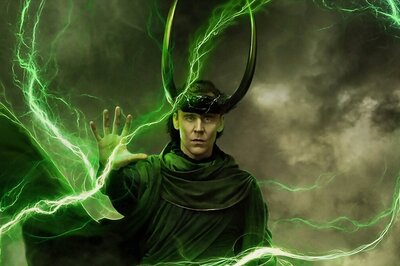
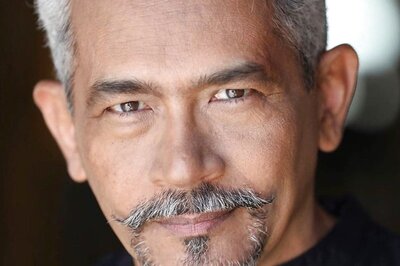
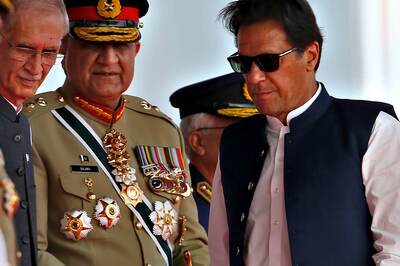




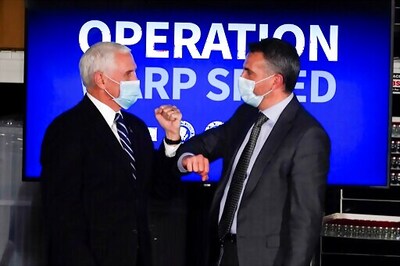
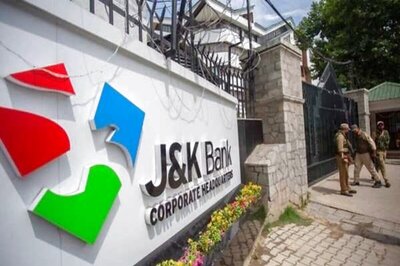
Comments
0 comment